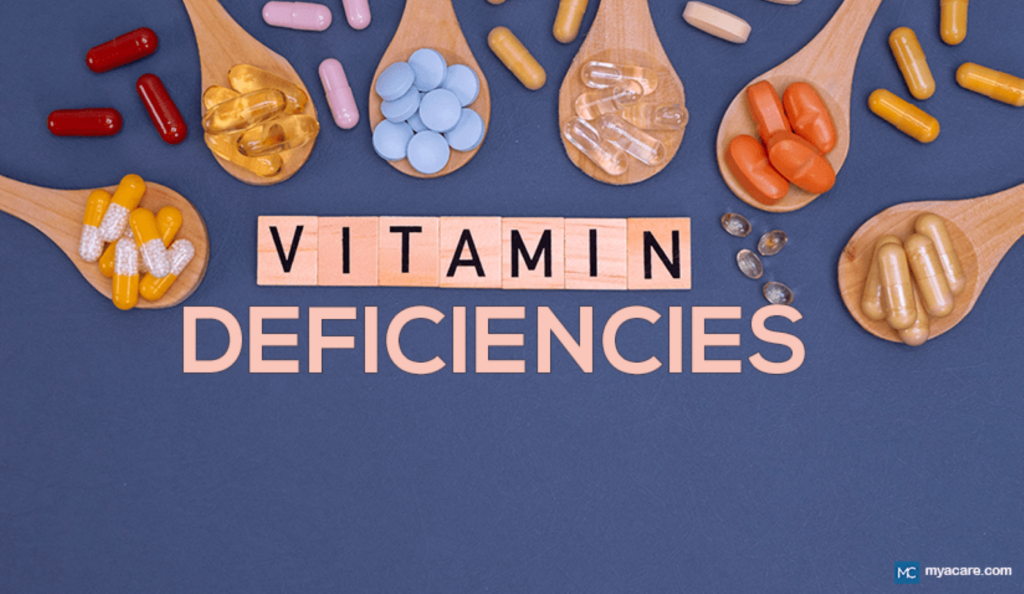Health Conditions
Muscle Cramps: Discover the Vitamin Deficiency Link
Muscle cramps can be a painful and inconvenient condition that can affect anyone, from athletes to the elderly.
If you’ve ever experienced the sudden and involuntary contraction of a muscle, you know how debilitating it can be.
But did you know that a vitamin deficiency could be to blame for these cramps? In this article, we will explore the link between muscle cramps and vitamin deficiency, focusing on the specific vitamin that plays a role in this uncomfortable condition.
Understanding Vitamins and Their Role in Muscle Function
Vitamins are required for a variety of human activities, including muscular health. They offer the nutrition required for our muscles to perform properly. Muscle cramps and spasms can occur when our systems do not have enough of particular vitamins. Understanding the role of vitamins in muscle function is critical for determining the individual vitamin deficits that might induce muscular cramps.
Vitamin D is one of the most important vitamins for muscle health. This vitamin aids in calcium absorption, which is necessary for muscular contraction and relaxation. Without proper vitamin D levels, our muscles may not receive the calcium they require, resulting in muscle cramps. Additionally, vitamin B12 is vital for muscle health since it aids in nerve function and the production of red blood cells, which transport oxygen to the muscles. A vitamin B12 shortage can cause muscle weakness and cramping.

Common Vitamin Deficiencies and Their Impact on Muscle Cramps
Several common vitamin deficits can lead to muscle cramping. These deficits are frequently the result of poor dietary choices or medical conditions that impair vitamin absorption. Let’s take a closer look at three vitamins that are usually linked to muscular cramps: vitamin D, B12, and magnesium.
Vitamin D Deficiency and Muscle Cramps
Vitamin D deficiency is a widespread condition globally, particularly among people who get little sun exposure or have darker skin, which hinders vitamin D synthesis. This insufficiency can cause a variety of health concerns, including muscle cramping. As previously mentioned, vitamin D is essential for calcium absorption. Without enough vitamin D, our muscles may not receive the calcium they require for healthy contraction and relaxation, resulting in muscle cramps.
Vitamin B12 Deficiency and Muscle Cramps
Vitamin B12 insufficiency is frequently connected with anemia and can cause muscle weakness and cramping. This vital vitamin is predominantly found in animal-based foods, making it difficult for vegetarians and vegans to attain adequate quantities through diet alone. Vitamin B12 is required for nerve function; a deficit can induce nerve damage, resulting in muscle spasms and paralysis.
Magnesium Deficiency and Muscle Cramps
Magnesium is another key mineral that regulates muscular function. It improves appropriate muscular function and relaxes muscles after contraction. A magnesium deficit can upset this balance, leading to muscular cramps and spasms. Certain drugs, such as diuretics, can increase magnesium excretion and cause deficits. Inadequate food intake, as well as certain health issues, can all contribute to magnesium insufficiency.

Other Potential Causes of Muscle Cramps
While vitamin deficiencies are a prevalent cause of muscular cramps, it is important to examine other possible causes. Dehydration, misuse of muscles, poor circulation, electrolyte imbalances, and certain medical diseases can all cause muscular cramps. It is critical to contact with a healthcare practitioner to rule out any underlying medical concerns and discover the source of your muscular spasms.
Diagnosing and Treating Vitamin Deficiencies
If you feel a vitamin deficiency is causing your muscular cramps, you should obtain a professional diagnosis and therapy. A healthcare practitioner can do blood tests to check your vitamin levels and discover any deficits. Once diagnosed, therapy usually entails correcting the underlying deficit through dietary changes and, in some circumstances, supplementation.
To treat vitamin D deficiency, increase sun exposure and consume vitamin D-rich foods such as fatty fish and fortified dairy products. Vitamin B12 deficiency can be treated by including animal-based items in the diet or taking B12 supplements. Magnesium deficiency can be remedied by eating magnesium-rich foods such as leafy greens, nuts, and seeds, or by taking magnesium supplements.

Preventing Muscle Cramps Through a Balanced Diet and Supplementation
To avoid muscle cramps, eat a well-balanced diet rich in vitamins and minerals. Make sure you eat a range of nutrient-dense foods, such as fruits, vegetables, whole grains, lean meats, and healthy fats. This will assist guarantee that you get a variety of vitamins and minerals that promote muscle health.
Supplementation can also be advantageous, particularly for people who are at risk of vitamin deficiencies or have tight dietary restrictions. Consult a healthcare practitioner or qualified dietitian to establish if supplementation is necessary, as well as the appropriate dosage and type of supplement for your specific needs.
Conclusion
Finally, vitamin shortages might contribute significantly to the development of muscle cramps. Understanding which vitamins are involved and how they affect muscle function is critical for avoiding and treating this painful illness. Vitamin D, vitamin B12, and magnesium deficits are particularly prominent causes of muscle cramps.
If you have frequent muscle cramps, you should see a doctor to find out what’s causing them and treat any nutritional deficiencies. With the proper diagnosis and therapy, you can reduce or even prevent muscular cramps by ensuring that your body obtains the vitamins it requires for normal muscle function.
Remember that a balanced diet rich in fruits, vegetables, lean proteins, and whole grains is essential for giving your body with the vitamins and minerals it requires. If necessary, consult a healthcare practitioner before beginning any supplements regimen. By taking proactive measures to treat vitamin deficiencies, you can enhance your general muscle health and live a more comfortable, cramp-free lifestyle.
So, let’s explore the realm of vitamins and muscle cramps and see how a minor nutritional change can make a big difference.
Trusted Health, Wellness, and Medical advice for your well-being



